China 'pumps' billions of dollars into SpaceX's rival; US investigates Huawei... are highlights in this week's technology news on Saturday.
China 'pumps' billions of dollars into SpaceX's rival
China is stepping up its aerospace development, especially in the private sector, to close the gap with Elon Musk's SpaceX.

At least six Chinese reusable rockets are expected to launch this year, marking a major step forward for private spaceflight. The country’s first commercial launch pad is set to begin operations in November 2024, while Beijing and local governments are pouring billions of dollars into private companies.
The rise of these companies reflects China’s long-term strategy to develop an independent space industry that is not dependent on Western technology. For years, Beijing has touted the sector as a symbol of its success, growing largely with domestic resources.
The trend of technological self-reliance – from semiconductors to artificial intelligence (AI) – is becoming increasingly urgent as China seeks to consolidate its position and build a “fortress” in the face of growing competitive pressure from the United States.
In a rare meeting with tech CEOs in February, Chinese President Xi Jinping said he wanted the private sector to compete, spur growth and innovation. The boss of GalaxySpace, a satellite maker, was also present.
Watch video of Starship's sixth test flight launching from Starbase on November 19, 2024. (Source: SpaceX)
After SpaceX, the company with the most launches last year was CASC, with 51 launches, compared to SpaceX’s 134, although Chinese rockets are not reusable. And not all of them were successful.
Prominent names in the Chinese aerospace industry include LandSpace Technology, Orienspace and Deep Blue Aerospace. Deep Blue Aerospace is planning to test the recovery of the Nebula-1 rocket's booster stage after its orbital flight.
US investigates Huawei
Huawei, ZTE and China Telecom are on a list of companies being investigated by the US Federal Communications Commission (FCC).
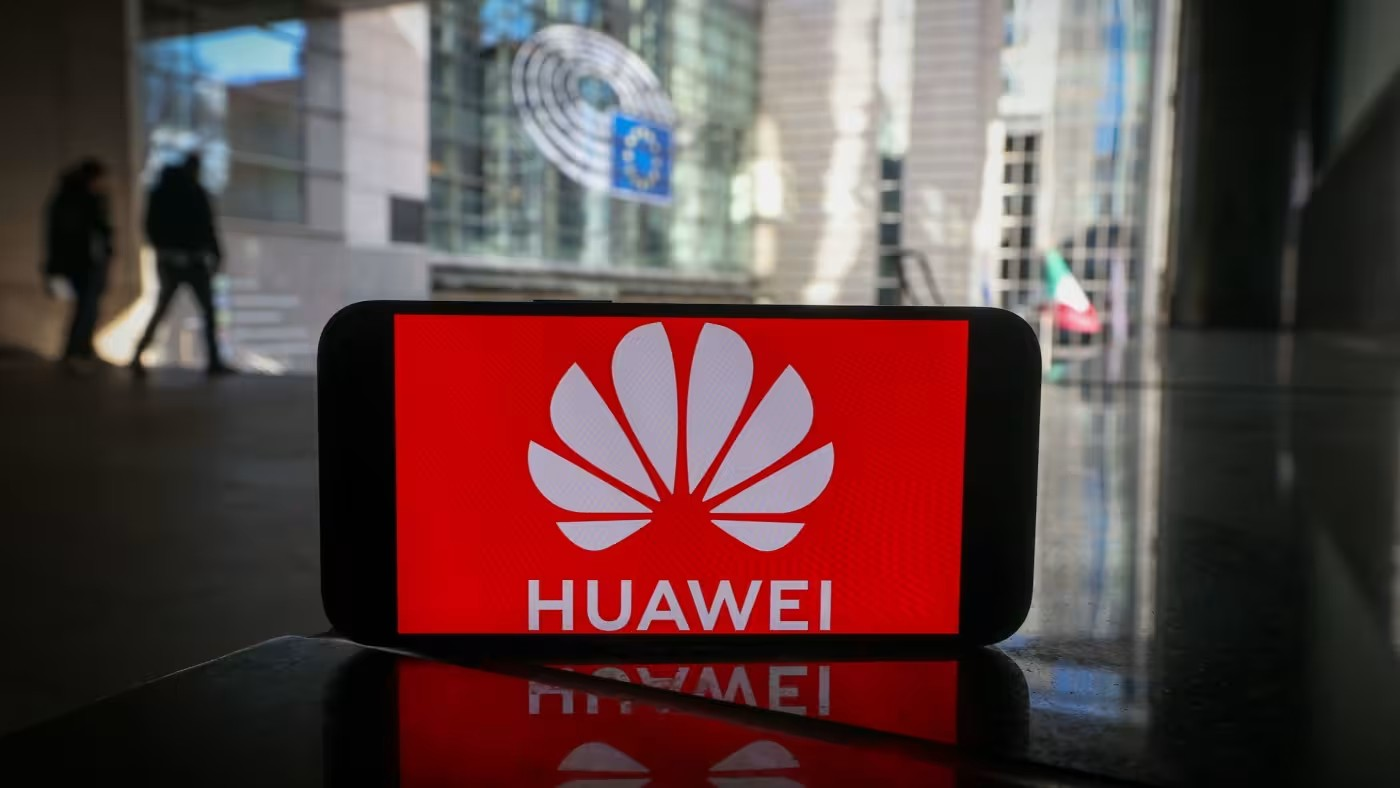
The FCC announced it had launched a “wide-ranging investigation” into Chinese corporations including ZTE – a major telecommunications equipment supplier, and Hikvision – the world’s largest maker of surveillance cameras.
The investigation also includes China Mobile International USA and its US subsidiaries China Telecom and China Unicom.
According to FCC Chairman Brendan Carr, the commission believes some organizations are ignoring US efforts to address security threats from China.
The investigation comes amid simmering tensions between the US and China over a range of security and foreign policy issues.
In recent years, the US has grown increasingly concerned that telecommunications companies like Huawei could aid Beijing in its surveillance activities. However, China and the companies involved have denied the allegations.
South Korean display industry at risk of collapse
China has surpassed South Korea in the LCD sector and could soon dominate OLED technology, according to the Korea Display Industry Association.
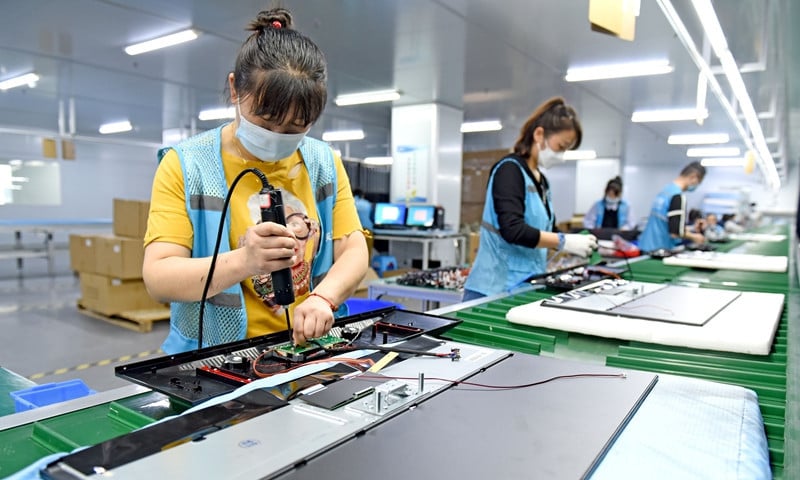
Two decades ago, South Korea shook up the tech industry when LG Display and Samsung Display overtook Japanese giants Sony, Sharp and Panasonic to dominate the LCD panel market.
However, history seems to be repeating itself as China has now surpassed South Korea in the LCD sector and may even dominate the OLED sector in the near future. According to Chosun Biz, the Korea Display Industry Association has received a stern warning about this shift.
“It is alarming that Chinese companies are narrowing the technology gap, even though there is still a gap in advanced technological capabilities,” said Lee Cheong, president of Samsung Display. However, this gap may not last forever.
Currently, Chinese companies such as TCL CSOT and BOE have dominated the global LCD market. Samsung Display has stopped LCD production, while LG Display is expected to close its LCD line this month, leaving LG Electronics and Samsung Electronics dependent on supplies from China.
After dominating the LCD market, LG Display and Samsung Display have focused on advanced OLED technology. However, Mr. Lee Cheong warned that China will not stop at LCD.
Signs of the shift are already becoming clear. According to Trendforce, China's BOE will surpass Samsung Display in smartphone OLED panel production by 2024.
Not stopping there, BOE also invested $9 billion in a new 8.6G OLED factory, while TCL CSOT has begun testing RGB OLED production using inkjet technology.
If South Korea fails to act quickly, China could repeat the scenario that cost Japan its position in the LCD industry 20 years ago – and this time, the victim could be South Korea.
(Synthetic)

Source: https://vietnamnet.vn/trung-quoc-bom-ty-usd-cho-doi-thu-cua-spacex-my-dieu-tra-huawei-2385575.html




![[Photo] Cultural, sports and media bloc at the 50th Anniversary of Southern Liberation and National Reunification Day](https://vphoto.vietnam.vn/thumb/1200x675/vietnam/resource/IMAGE/2025/4/30/8a22f876e8d24890be2ae3d88c9b201c)


![[Photo] The parade took to the streets, walking among the arms of tens of thousands of people.](https://vphoto.vietnam.vn/thumb/1200x675/vietnam/resource/IMAGE/2025/4/30/180ec64521094c87bdb5a983ff1a30a4)
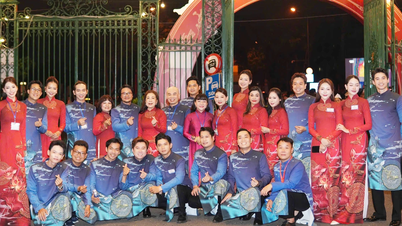


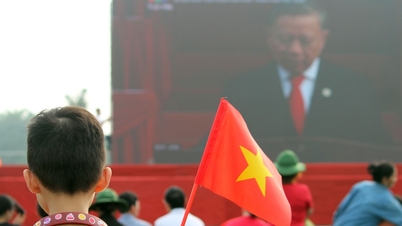







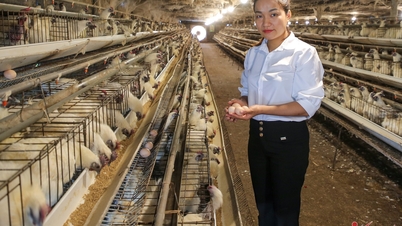




![[Photo] Chinese, Lao, and Cambodian troops participate in the parade to celebrate the 50th anniversary of the Liberation of the South and National Reunification Day](https://vphoto.vietnam.vn/thumb/1200x675/vietnam/resource/IMAGE/2025/4/30/30d2204b414549cfb5dc784544a72dee)









































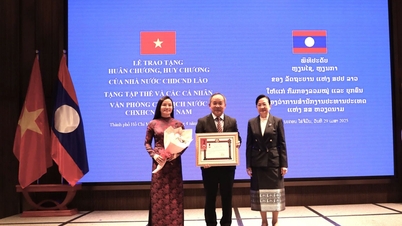

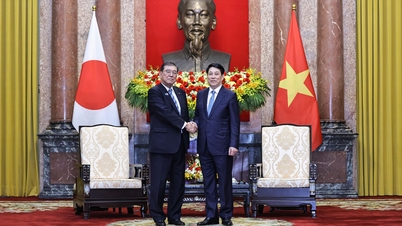




















Comment (0)